Neuroscience
-
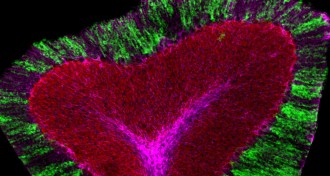 Neuroscience
NeuroscienceStress hormone kicks brain cells into gear
Norepinephrine, a stress hormone, wakes up cells called astroglia, possibly shifting brain into vigilant state.
-
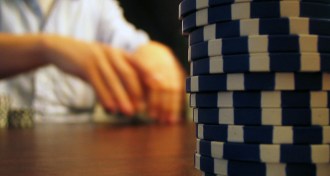 Genetics
GeneticsHow you bet is affected by your genes
When betting, people's decisions are influenced by variations in a set of genes that regulate the brain chemical dopamine.
-
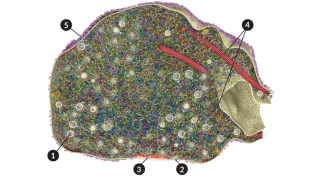 Neuroscience
NeuroscienceVisualization offers view of a nerve cell’s dispatch center
To get a closer look at how messages move in the brain, researchers created a 3-D visualization that provides a clearer view of how nerve cells communicate.
-
 Neuroscience
NeuroscienceNeurons pull together as a brain learns
Learning and memory in rats is linked with increases in cortical oscillations, or brain cells firing off in groups, a new study shows.
-
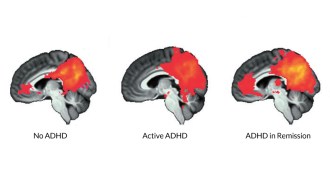 Neuroscience
NeuroscienceBrain signal reappears after ADHD symptoms fade
In adults who no longer have ADHD, brain synchrony appears.
-
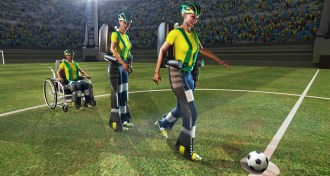 Tech
TechExoskeleton helps paraplegic kick off World Cup
A paralyzed person wearing a brain-controlled robotic exoskeleton has made the first kick at the 2014 soccer World Cup.
-
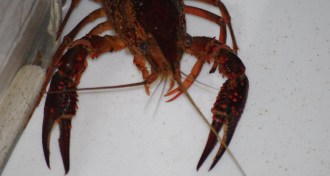 Neuroscience
NeuroscienceCrayfish get anxious, too
After receiving a shock, crayfish act anxious, avoiding brightly lit areas.
-
 Health & Medicine
Health & MedicineAnesthesia linked to effects on children’s memory
Undergoing anesthesia as an infant may impair a person's ability to recall details later in life, a new study suggests.
-
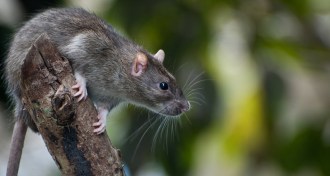 Neuroscience
NeuroscienceRats feel regret, experiment finds
When they turn down a good meal for a lesser one, rodents regret their choice, a study suggests.
-
 Neuroscience
NeuroscienceStem cell approach for Parkinson’s disease gets boost
Postmortem study finds Parkinson’s patients can retain transplanted neurons for years.
-
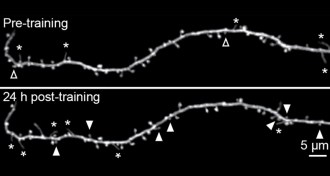 Neuroscience
NeuroscienceSleep strengthens some synapses
Mice show signs of stronger neuron connections when allowed to sleep after learning a trick.
-
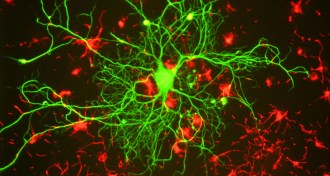 Neuroscience
NeuroscienceStress and the susceptible brain
Some of us bounce back from stress, while others never really recover. A new study shows that different brain activity patterns could make the difference.